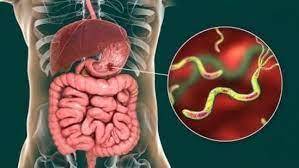Preventing Gastric Ulcers
Introduction:
Gastric ulcers are a prevalent yet often misunderstood condition that affects millions of people worldwide. These painful sores in the lining of the stomach can significantly impact one's quality of life if left untreated. However, with the right knowledge and preventive measures, gastric ulcers can be effectively managed and even prevented altogether. In this comprehensive guide, we'll delve into the causes, symptoms, diagnosis, treatment options, and most importantly, preventive strategies for gastric ulcers.
Understanding Gastric Ulcers:
Before delving into prevention, it's essential to understand what gastric ulcers are and how they develop. Gastric ulcers, also known as peptic ulcers, are open sores that form in the lining of the stomach, upper small intestine, or esophagus. These ulcers typically occur when the protective lining of the stomach becomes damaged, allowing stomach acid to erode the underlying tissue.
Causes of Gastric Ulcers:
Several factors can contribute to the development of gastric ulcers, including:
1. Helicobacter pylori (H. pylori) infection: This bacterium is a common cause of gastric ulcers, as it weakens the stomach's protective lining, making it more susceptible to damage from stomach acid.
2. Nonsteroidal anti-inflammatory drugs (NSAIDs): Long-term use of NSAIDs such as aspirin, ibuprofen, and naproxen can irritate the stomach lining and increase the risk of developing ulcers.
3. Excessive alcohol consumption: Alcohol can irritate the stomach lining and increase stomach acid production, leading to ulcer formation.
4. Smoking: Smoking can weaken the stomach's protective lining and interfere with its ability to heal, making smokers more prone to developing gastric ulcers.
5. Stress: While stress alone may not cause ulcers, it can exacerbate symptoms and delay healing in individuals already predisposed to gastric ulcers.
Symptoms of Gastric Ulcers:
Gastric ulcers can present with a variety of symptoms, including:
1. Burning or gnawing abdominal pain, typically occurring between meals or during the night.
2. Indigestion or heartburn.
3. Nausea and vomiting, sometimes with blood.
4. Unintentional weight loss.
5. Appetite changes.
6. Dark, tarry stools, indicating gastrointestinal bleeding.
Diagnosing Gastric Ulcers:
If you experience persistent symptoms suggestive of gastric ulcers, it's crucial to seek medical evaluation promptly. Diagnosis typically involves a combination of the following tests:
1. Upper endoscopy: A thin, flexible tube with a camera on the end (endoscope) is passed through the mouth and into the stomach to visualize any ulcers or abnormalities in the stomach lining.
2. H. pylori testing: This may include a blood, stool, or breath test to detect the presence of H. pylori bacteria.
3. Imaging tests: In some cases, imaging studies such as X-rays or CT scans may be ordered to evaluate the extent of ulceration or complications.
Treatment Options for Gastric Ulcers:
Treatment for gastric ulcers aims to relieve symptoms, promote healing, and prevent complications. Common treatment options include:
1. Proton pump inhibitors (PPIs): These medications reduce stomach acid production, allowing the ulcer to heal. Examples include omeprazole, lansoprazole, and esomeprazole.
2. Antibiotics: If H. pylori infection is present, a combination of antibiotics is prescribed to eradicate the bacteria.
3. Antacids and H2-receptor antagonists: These medications help neutralize stomach acid and provide temporary relief from symptoms.
4. Cytoprotective agents: Drugs like sucralfate form a protective barrier over the ulcer, promoting healing and preventing further damage.
Preventing Gastric Ulcers:
While some risk factors for gastric ulcers, such as genetics, cannot be modified, there are several lifestyle modifications and preventive measures individuals can adopt to reduce their risk:
1. Limit NSAID use: If you require NSAIDs for pain management, use them sparingly and at the lowest effective dose. Consider alternative pain relief options such as acetaminophen.
2. Avoid alcohol and quit smoking: Both alcohol and smoking can irritate the stomach lining and increase the risk of developing ulcers. Quitting smoking and moderating alcohol consumption can significantly reduce ulcer risk.
3. Practice stress management techniques: Chronic stress can exacerbate ulcer symptoms and delay healing. Incorporate stress-reducing activities such as meditation, yoga, or deep breathing exercises into your daily routine.
4. Follow a healthy diet: A balanced diet rich in fruits, vegetables, whole grains, and lean proteins can support overall digestive health and reduce ulcer risk. Limit spicy and acidic foods that may irritate the stomach lining.
5. Stay hydrated: Drinking an adequate amount of water throughout the day helps maintain the mucosal lining of the stomach and promotes healing of existing ulcers.
6. Practice good hygiene: Wash your hands regularly to prevent the spread of H. pylori bacteria, especially before eating or preparing food.
Conclusion:
Gastric ulcers can significantly impact an individual's quality of life if left untreated. However, with proper understanding, timely diagnosis, and appropriate treatment, most ulcers can be effectively managed. Moreover, adopting lifestyle modifications and preventive measures can help reduce the risk of developing gastric ulcers in the first place. By taking proactive steps to prioritize digestive health, individuals can minimize their susceptibility to this painful condition and enjoy a better quality of life. Remember, always consult with a healthcare professional for personalized advice and treatment recommendations.




No comments yet
Be the first to share your thoughts!